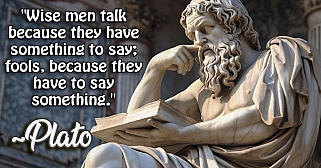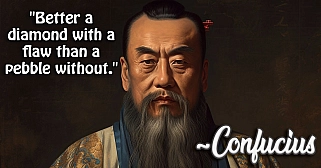Lao Tzu: The Sage of the Tao
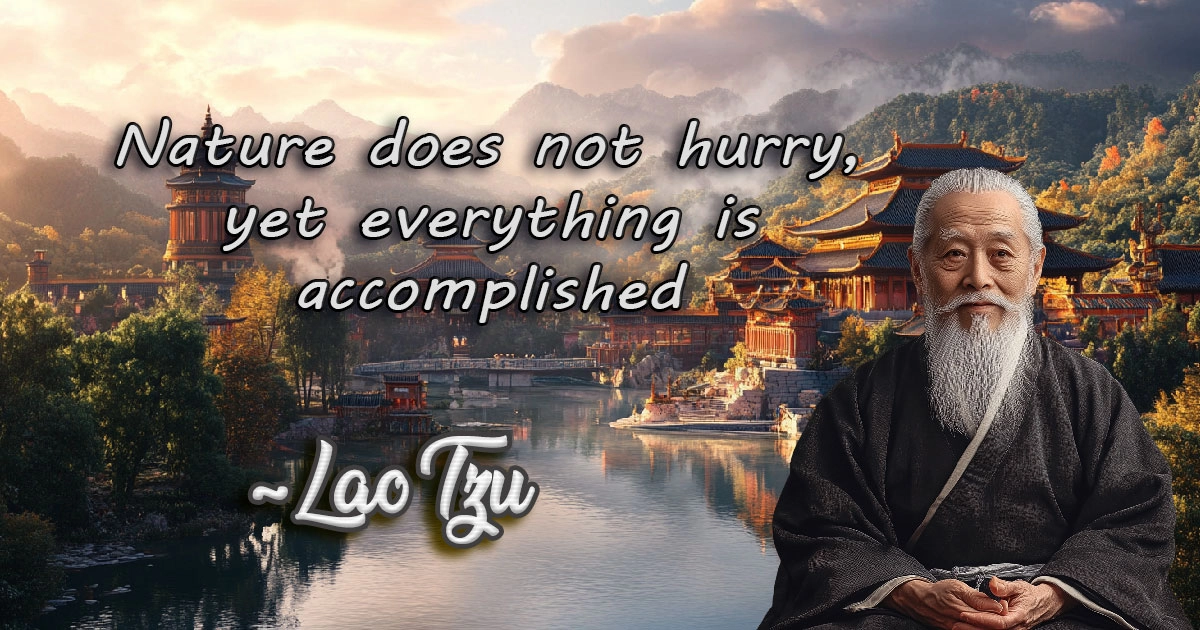
Lao Tzu
Lao Tzu (also spelled Laozi), whose name means "Old Master" or "Old Sage," is one of the most influential figures in Chinese philosophy. He is traditionally considered the author of the Tao Te Ching (Dao De Jing), a foundational text of Taoism that has shaped spiritual thought, governance, and personal wisdom across the ages. Though much about Lao Tzu’s life remains wrapped in legend, his teachings continue to echo through history.
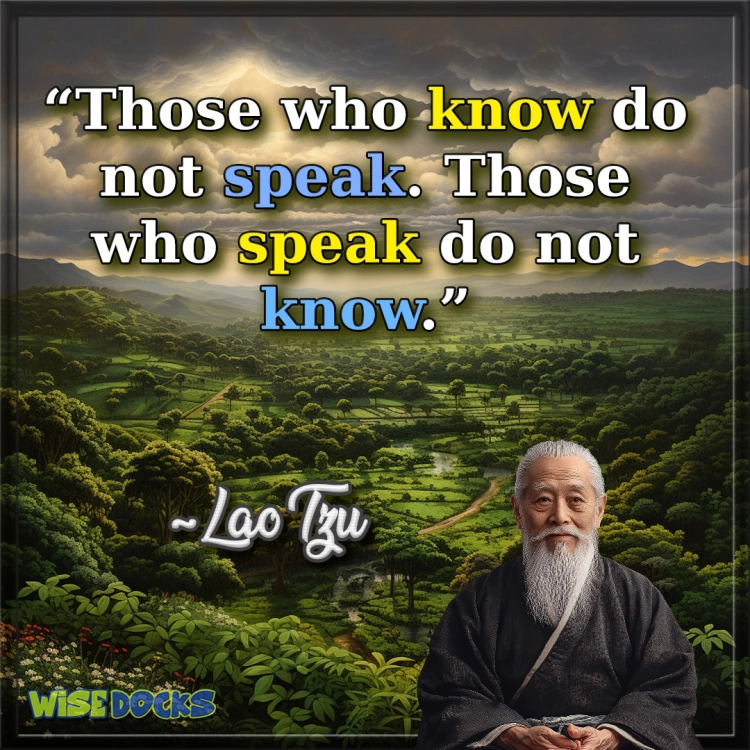
The Life of Lao Tzu
The historical records on Lao Tzu are sparse and shrouded in mystery. He is said to have lived during the 6th century BCE, around the same time as Confucius, though some scholars argue he may have lived even later. According to legend, Lao Tzu was born in the state of Chu, part of the Zhou Dynasty. Some stories claim that he was born with white hair, a symbol of wisdom and age, and was a wise old soul from the moment he entered the world.
Lao Tzu served as a keeper of the archives in the royal Zhou court, a role that allowed him access to vast collections of ancient texts and wisdom. His work in the court made him a figure respected for his knowledge, but as the kingdom grew more corrupt, Lao Tzu became disillusioned with the decay of morality in society. Seeking a simpler, more natural way of life, he decided to leave the court and travel west to live in harmony with the Tao (or Dao, meaning "The Way").
As the story goes, when Lao Tzu reached the western border of China, the gatekeeper, recognizing him as a great sage, begged him to leave behind his teachings before he departed into the wilderness. Lao Tzu then composed the Tao Te Ching, a short yet profound text consisting of 81 verses that distill his insights into the nature of existence, leadership, and the art of living.
After completing the Tao Te Ching, Lao Tzu disappeared into the mountains, leaving behind no further trace. Whether he died, became a recluse, or achieved some transcendent form of existence, no one knows for sure. His teachings, however, became immortal.
Teachings of Lao Tzu: The Wisdom of the Tao
At the heart of Lao Tzu’s teachings is the concept of the Tao, an indescribable force that flows through all things and underlies the universe. Lao Tzu taught that the Tao is not something to be controlled or fully understood, but rather something to be aligned with. To live in harmony with the Tao is to find balance, peace, and wisdom.
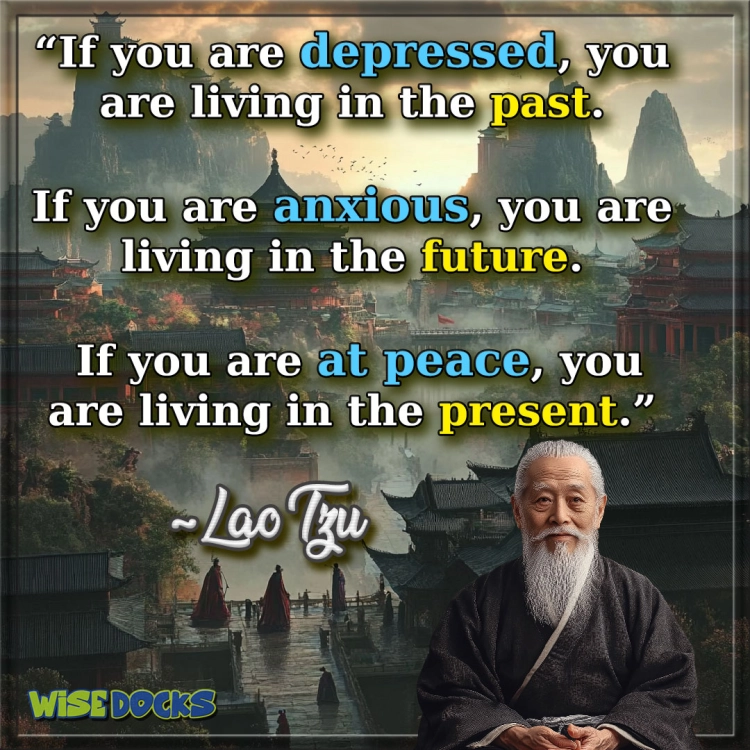
1. Wu Wei: The Principle of Effortless Action
One of Lao Tzu’s most famous concepts is wu wei, which can be translated as "non-action" or "effortless action." Contrary to what it might sound like, wu wei does not mean passivity or laziness. Instead, it refers to the idea of acting in accordance with the natural flow of life, without forcing things to happen. Lao Tzu believed that human beings often create unnecessary suffering by trying to impose their will on the world instead of following the path of least resistance.
A metaphor often used to describe wu wei is that of water. Water is soft and yielding, yet over time it can wear down the hardest rock. Water flows effortlessly around obstacles, adapting to the shape of its surroundings without resistance. Lao Tzu taught that like water, we should embrace flexibility, humility, and patience in our actions.
In the Tao Te Ching, Lao Tzu writes:
- “The highest good is like water. Water gives life to ten thousand things and does not strive. It flows in places men reject and so is like the Tao.”
2. Simplicity and Humility
Lao Tzu believed that much of the chaos and suffering in the world stemmed from people complicating their lives with excessive desires, ambitions, and material attachments. In his view, simplicity was the path to peace. By letting go of the need to control, own, or achieve, one could cultivate inner contentment and joy. Lao Tzu encouraged a return to a life of humility, where one lives in accordance with nature and respects the rhythms of life.
In his teachings, he cautioned against the dangers of pride and ambition:
- “He who knows that enough is enough will always have enough.”
3. Leading by Serving
Though Lao Tzu withdrew from the political realm, he had strong opinions on leadership. His view of governance was radically different from the authoritarian rule of the time. He believed that the best leaders were those who led by example, not by force or coercion. To Lao Tzu, a wise ruler was one who served the people with compassion, humility, and simplicity, allowing them to flourish naturally without heavy-handed interference.
In the Tao Te Ching, Lao Tzu writes:
- “A leader is best when people barely know he exists. When his work is done, his aim fulfilled, they will say: we did it ourselves.”
This ideal of "servant leadership" has influenced generations of thinkers and leaders far beyond ancient China.
4. Harmony with Nature
Lao Tzu taught that the Tao could be seen in nature, and that humans should strive to live in balance with the natural world. He saw the seasons, the growth of plants, and the flow of rivers as manifestations of the Tao. Instead of striving against nature or trying to dominate it, humans should find their place within it.
He expressed this reverence for nature in many verses of the Tao Te Ching:
- “Nature does not hurry, yet everything is accomplished.”
Lao Tzu emphasized that we should emulate nature's quiet, steady persistence. Nature does not strive, yet it achieves everything in its own time. The trees grow, the rivers flow, and the sun rises without effort or force. By observing the natural world, we can learn how to live in harmony with the Tao.
Lao Tzu’s Legacy
Though Lao Tzu may have disappeared into the mists of time, his wisdom lives on through the Tao Te Ching and the Taoist tradition. His teachings have not only influenced Taoism but have also shaped Zen Buddhism, Confucianism, and even modern movements centered on mindfulness and simplicity.
Lao Tzu’s philosophy resonates with those who seek inner peace in a world that often seems chaotic. His focus on living in the present, embracing simplicity, and flowing with the rhythms of life continues to inspire spiritual seekers, leaders, and thinkers around the world.
In a world filled with noise and distractions, Lao Tzu’s voice calls gently from the past, reminding us that the key to happiness lies not in striving or controlling, but in letting go, following the Tao, and embracing the profound beauty of the present moment.

